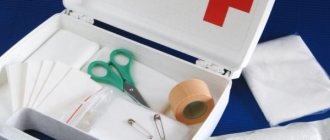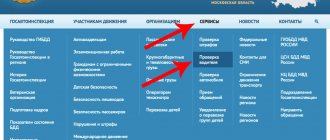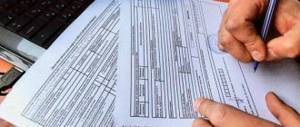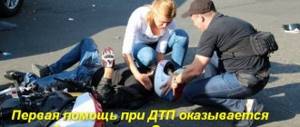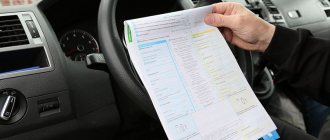In a road traffic accident, harm can be caused not only to the vehicles of the participants in the accident, but also to the health of a third party. Often, a road accident also causes a person’s death.
It is in such situations that in practice there is a need to appoint a forensic medical examination (FME). Below are the order of appointment and features of this examination.
Attention! If you have any questions, you can chat for free with a lawyer at the bottom of the screen or call Moscow; Saint Petersburg; Free call for all of Russia.
What is a forensic examination after an accident?
Forensic medical examination after an accident is a type of research that can be characterized as a list of professional actions aimed at identifying the fact of harm to the health of an individual, as well as determining its severity. This examination is also carried out to identify the cause of death of a person.
Forensic medical examination after a traffic accident can only be carried out by specialists who have the appropriate education and certain work experience. After carrying out all the necessary actions, the expert issues a special written conclusion, which reflects the results of the forensic examination and can subsequently be used as evidence in court proceedings.
The SME is of particular importance in cases where people have been injured as a result of an accident. It is on the basis of a medical report that the culprit may subsequently be brought to administrative or criminal liability. For example, if the victim’s health was harmed with mild or moderate severity, the culprit may be held administratively liable. And if the victim’s condition was seriously harmed or a fatal traffic accident occurred, then the culprit may be held criminally liable.
Mandatory examination in case of an accident with victims
Let's consider the changes made to paragraph 2 of the inspection rules:
2. The driver of a vehicle in respect of whom there are sufficient grounds to believe that he is in a state of intoxication is subject to an examination for alcohol intoxication and a medical examination for intoxication.
2. The driver of a vehicle in respect of whom there are sufficient grounds to believe that he is in a state of intoxication, as well as the driver in respect of whom a determination has been made to initiate a case for an administrative offense provided for Article 12.24 of the Code of the Russian Federation on Administrative Offences.
Please note that now the driver will be subjected to an intoxication examination if a decision has been made against him to initiate an administrative case under Article 12.24:
Article 12.24. Violation of traffic rules or vehicle operating rules, resulting in minor or moderate harm to the health of the victim
1. Violation of traffic rules or rules of operation of a vehicle, resulting in minor harm to the health of the victim, -
shall entail the imposition of an administrative fine in the amount of two thousand five hundred to five thousand rubles or deprivation of the right to drive vehicles for a period of one to one and a half years.
2. Violation of traffic rules or rules of operation of a vehicle, resulting in the infliction of moderate harm to the health of the victim -
shall entail the imposition of an administrative fine in the amount of ten thousand to twenty-five thousand rubles or deprivation of the right to drive vehicles for a period of one and a half to two years.
I would like to draw your attention to the fact that the examination is carried out only in relation to the driver who has violated the traffic rules, i.e. against the culprit of the accident.
Let's look at a few examples:
1. A typical accident with a pedestrian at a crossing, resulting in minor injury. In this accident, in any case, it is the driver’s fault (clause 14.1 of the traffic rules), so traffic police officers will conduct an examination for intoxication.
2. An even more typical accident with a pedestrian 10 meters from a pedestrian crossing, which resulted in minor injury. In this case, the driver’s actions may not constitute a violation of traffic rules, and therefore no examination will be carried out.
3. An accident involving two cars, each of which drove into the oncoming lane just a little, and after the impact, each of the cars ended up on the opposite side of the road. In this case, the traffic police officer registering the accident will most likely not be able to reliably determine the guilt of each of the participants. Therefore, either of the participants or both at once can be sent for examination.
We can only hope that in practice this innovation will make it possible to leave without a license drivers who allow themselves to get behind the wheel while intoxicated.
Kinds
Experts divide forensic medical examination after an accident into several types according to various criteria. For example, taking into account the object of study, a forensic medical study can be carried out:
- in relation to a living person;
- in relation to the corpse.
Each of these types has its own characteristics, which must be taken into account.
SMEs can also be distinguished by those who conduct the research. In this case, there are forensic examinations conducted by government agencies and independent organizations. The law states that everyone can resort to the services of an independent expert institution. It is necessary to contact an organization that has permission to carry out such work and employs the appropriate specialists.
Forensic medical examination in the case of a road traffic accident can also be:
- complex;
- repeated;
- commission.
During a comprehensive study of an object, the SME is appointed together with other examinations, and it is carried out by several specialists of various categories at once. If we talk about re-investigation of road accidents, it can be carried out in cases where, during the initial work, questions remained that were not answered definitively. A re-examination can also be carried out in cases where the results of the initial examination are questionable.
A commission forensic medical examination is carried out by a commission consisting of several experts. All of them must sign the final report. If one of them does not agree with the final result, he gives a special opinion.
Medical examination report
Persons sent for examination must get to a medical facility within two hours from the time the state of intoxication was detected or from the moment the traffic accident occurred. Direct research is carried out in several types of biological media, such as blood, urine, air or saliva.
Passing a medical examination and drawing up a report
Subsequent registration of the results of the medical examination is completed by an act, which is drawn up in a form approved by the Ministry of Health.
This act reflects the following data from the survey results:
- The appearance of the person subjected to examination, his behavior, orientation, state of consciousness, speech and memory. Coordination of movements, the general state of health and the nervous system in particular, as well as the presence of alcohol vapors when exhaled are especially checked.
- Laboratory tests must be recorded in the act without fail. The act itself is drawn up in two copies signed by the doctor.
- If the examined person does not agree with the results of the examination, then a repeat examination is carried out with the involvement of another doctor. Data from repeated studies are valid if they were carried out within 24 hours from the time of the accident or initial examination.
Appointment of a forensic medical examination in a traffic accident
Forensic medical examination is one of the most common types of research after registration of an accident, which is very often prescribed in practice. It is always prescribed in cases where the victim’s health has been harmed, even minor. Basically, in practice, the following scheme is used: if an ambulance arrives at the scene of an incident, then an emergency medical technician is assigned to this case. This is also possible in cases where the victim seeks help from a medical institution on his own.
This type of examination can be ordered either by the court or by the investigator or inquiry officer. It can be carried out both in court and pre-trial. In addition, the services of an independent expert can be used by both the victim and the perpetrator of a traffic accident.
Peculiarities
If a driver involved in a traffic accident refuses to be checked by a traffic police inspector, then, in this case, if there are sufficient grounds, he will be sent to a medical institution for a more complete and in-depth examination. In this case, completely accurate data can be obtained about the degree of alcohol intoxication of the driver. For such cases, there is a certain procedure for sending persons whose condition raises reasonable doubts for medical examination.
Passing a medical examination at a medical institution
Referral to a medical institution requires the presence of witnesses. Otherwise, the medical examination report may be declared invalid and will not be able to act as evidence in the future.
How is the research conducted?
Forensic examination after an accident, like any other type of research, can be carried out on the basis of an appropriate decision. Namely, a document adopted by an authorized body (for example, a court or an investigator), which serves as the basis for conducting an expert study. It must contain the following information:
- data of the person by whose decision a forensic medical examination is ordered after an accident;
- name of the institution that should conduct the examination (or data of a specific expert);
- the case for which the expert investigator is appointed;
- a list of questions that the expert must answer;
- data about the object of study;
- data on samples that are provided to the expert, if any, etc.
The victim or perpetrator of an accident can contact an expert. In this case, to carry out research work, a corresponding agreement is concluded, which also regulates the legal relationship between the contractor and the customer. It stipulates not only the timing and procedure for conducting the research, but also the amount of remuneration for the performer.
After conducting all the necessary research, the expert draws up an appropriate conclusion. This is an important document that can be used in court as separate evidence.
The conclusion should reflect the following information:
- data from the expert who conducted the forensic examination;
- data of the object of examination;
- a thorough description of all the studies that were carried out during the SME;
- the study methods used in SMEs;
- questions that the expert had to answer;
- answers to all questions, with a thorough description of the process of obtaining them.
The expert's report must be complete and contain answers to all questions posed. If there are shortcomings and unclear points in it, then a repeat study may be ordered. If the forensic examination after the accident was carried out during a trial, then if there are unclear points and questions, the expert can be summoned to court and questioned regarding the conclusion he provided.
You also need to be aware that an expert can be held criminally liable for drawing up a false or incorrect conclusion. He is warned about this before starting his activities.
How can we help?
Guaranteeing results in legal matters is a sign of fraud. It is difficult to fully assess the situation in absentia. Therefore, lawyers give a full assessment only after studying the documents in the case.
- Consultation at the scene of the accident . Most mistakes are made by drivers immediately after an accident. Trying to escape to the scene of an accident and other actions prohibited by law can lead to a worsening of the situation. Therefore, the ability to immediately obtain legal assistance is important.
- Interviewing witnesses . In case of an accident, eyewitness testimony is of great importance. A competent lawyer will take timely steps to find witnesses.
- Search for recordings from DVRs and video cameras . Video recording is one of the most popular pieces of evidence in a trial that can clear a client of charges.
- Preparation of a statement of claim . An auto lawyer will provide assistance to a person injured in an accident. Moreover, it is possible not only to punish the culprit, but also to receive payment in the framework of civil proceedings.
- Representation of client interests in administrative or criminal proceedings.
Timing of forensic examination after an accident
The current legislation quite carefully regulates the procedure and rules for conducting a forensic medical examination after an accident. But the law does not provide specific deadlines for the implementation of expert activities. This is primarily due to the fact that such work requires various studies. In some cases, to determine the severity of the harm caused to the victim’s health, it is necessary to conduct various tests and analyses, which can take up to several months. Accordingly, the law states that the examination must be carried out within a reasonable time.
In some cases, a forensic examination after a car accident must be carried out as quickly as possible. For example, if it is carried out to identify the causes of death, then the expert must give his opinion within 1-2 days.
In addition, it is necessary to remember that if the inspection is carried out on the basis of a civil contract concluded between the customer and the contractor, then in this case, the text of the agreement may indicate clear deadlines for the examination. If they are violated, the contractor may be held liable as provided for in the contract.
Forensic examination in a traffic accident with a pedestrian
If the victim is not the driver of the vehicle, but a pedestrian, then in this case a forensic medical examination after an accident is subject to mandatory conduct on the basis of an appropriate decision of the authorized body. In practice, in such situations, a criminal case is always initiated; accordingly, the investigation is carried out on the basis of the decision of the inquiry officer or investigator.
Even if the victim’s health was not seriously harmed, and after the accident he went home, if necessary, he must go to the appropriate medical institution to conduct the necessary tests.
Investigation into fatal road accidents
In case of a fatal accident, a corpse is used as the object of forensic examination. As in the previous case, initiating a criminal case in such situations is mandatory, and there is a high probability that the culprit will be prosecuted.
When conducting an emergency medical examination in case of a fatal road accident, the main question that is asked to the expert is to determine the causes of death of the victim and their cause-and-effect relationship with the actions of the culprit of the road accident.
Basically, in practice, such an examination is carried out on the basis of the decision of the investigator, but in some cases the basis for the conduct is also a court decision.
Drivers' responsibility
In conclusion, I would like to dwell a little on the responsibility of drivers for driving while intoxicated. Everyone knows that driving while intoxicated is one of the most serious traffic violations. For such an offense, the violator can pay with his driver’s license for at least a year and a half. It is especially easy for those motorists who do not know the current legislation and all the legal nuances to lose their driver’s license.
Driving while intoxicated is prohibited
If the fact of alcohol intoxication is established and the driver agrees with this, the protocol and results of the examination are sent to the court. The driver has no right to drive the vehicle until the decision of the court hearing. If the guilty person is deprived of his license, then his car is placed in a impound lot, from where only a sober driver who has the right to drive can pick it up.
Therefore, it should be remembered that drunk driving will sooner or later lead to a traffic accident, as a result of which innocent people may suffer. In this regard, recently, the demand from drunk driving enthusiasts has become more stringent. Currently, a bill is being considered to bring such violators to criminal liability with simultaneous confiscation of the vehicle. Thus, strict measures are being taken, the ultimate goal of which is to improve the situation on the roads. Traffic police officers, among other violations, are most intolerant of drunk drivers.
Cost of forensic examination after an accident
Many people are interested in the cost of a forensic examination after an accident. In fact, it depends on the following factors:
- a list of questions posed to the expert;
- complexity of research activities;
- methods that should be used when conducting SMEs;
- institution where forensic medical examination is carried out, etc.
All this affects the cost of carrying out an inspection. But on average, such an examination after a traffic accident costs 15,000-30,000 rubles.
Cost of services
Lawyers provide all types of assistance in case of accidents on the roads. In the event of a complex accident, full support of the controversial situation is practiced
| Name of service | Price |
| Oral consultation | FOR FREE |
| Return of driver's license through court | from 10,000 rub. |
| Litigation with the insurance company OSAGO | from 10,000 rub. |
| Litigation with the CASCO insurance company | from 15,000 rub. |
| Collection of funds from the culprit of an accident, regardless of the amount | from 15,000 rub. |
| Litigation of fatal accidents and criminal charges | from 35,000 rub. |
| Consideration of an administrative case | from 8,000 rub. |
| Appealing decisions of the court of appeal and cassation in cases of road accidents | |
| Preparing a legal claim for an accident | from 2,000 rub. |
Features of conducting a forensic medical examination
Forensic medical examination after an accident has the following features:
- carried out in a medical institution and by a specialist who has appropriate education and experience;
- the object of the SME can be both living people and corpses;
- carrying out after an accident in order to identify the degree of harm caused to the victim’s health;
- implementation on the basis of an appropriate decision of the authorized body or in the presence of an agreement concluded between the customer and the contractor;
- the possibility of carrying out both in the pre-trial process and during the trial, etc.


